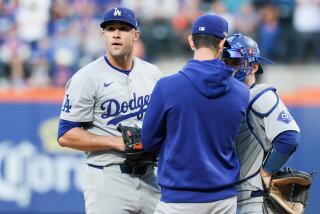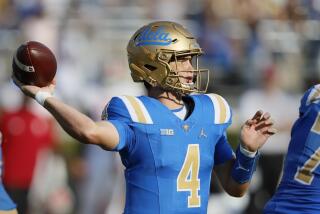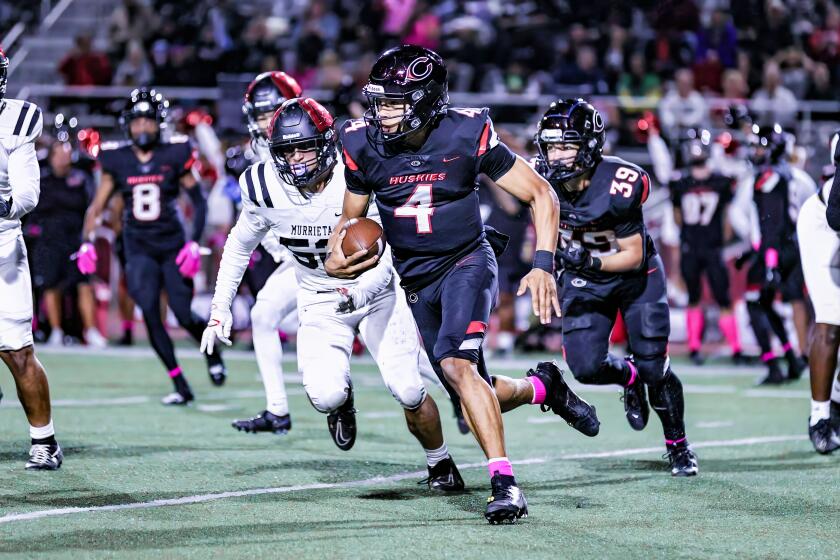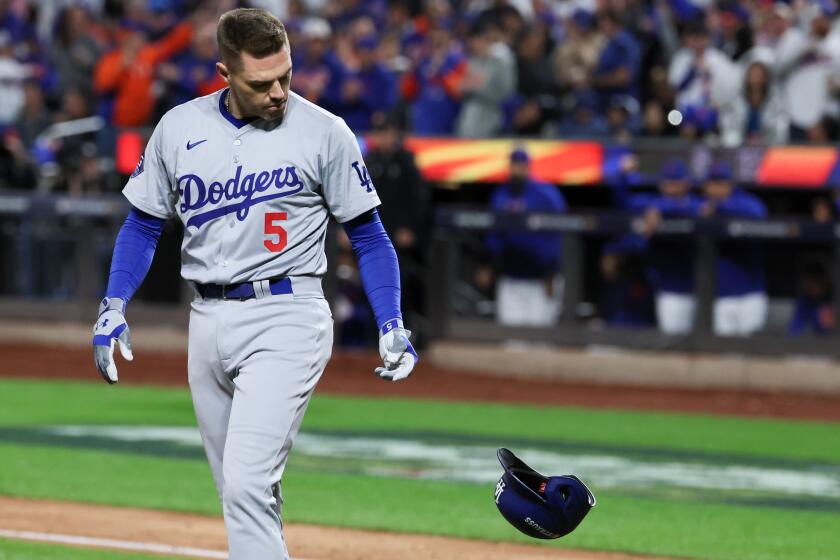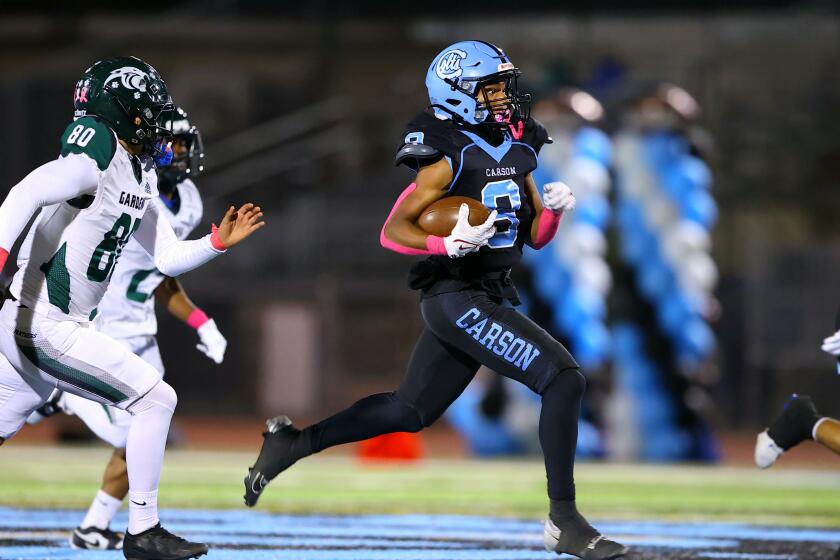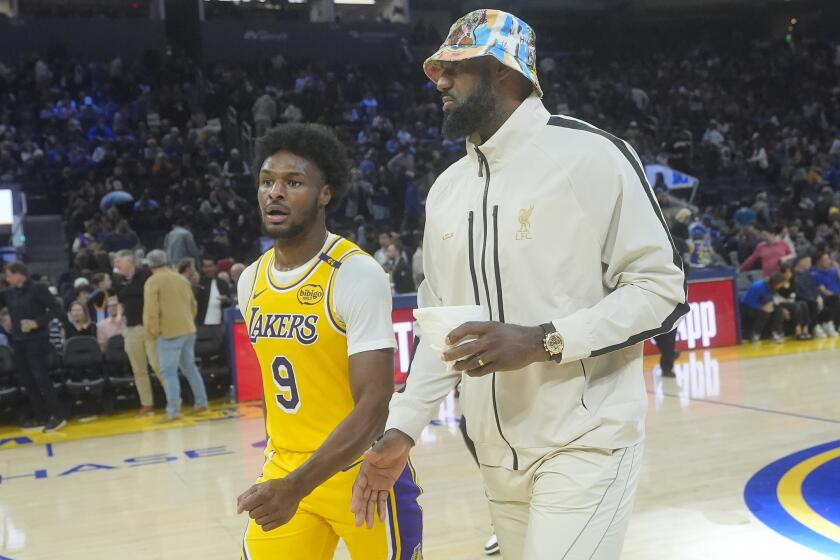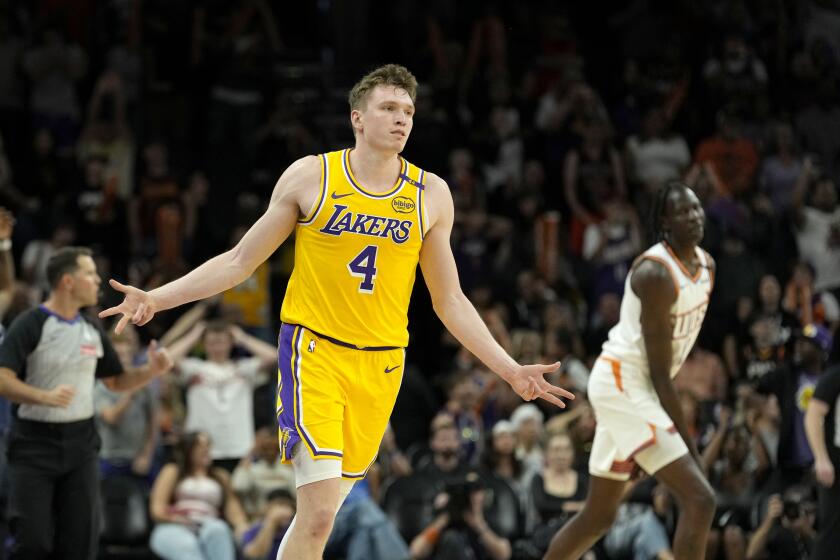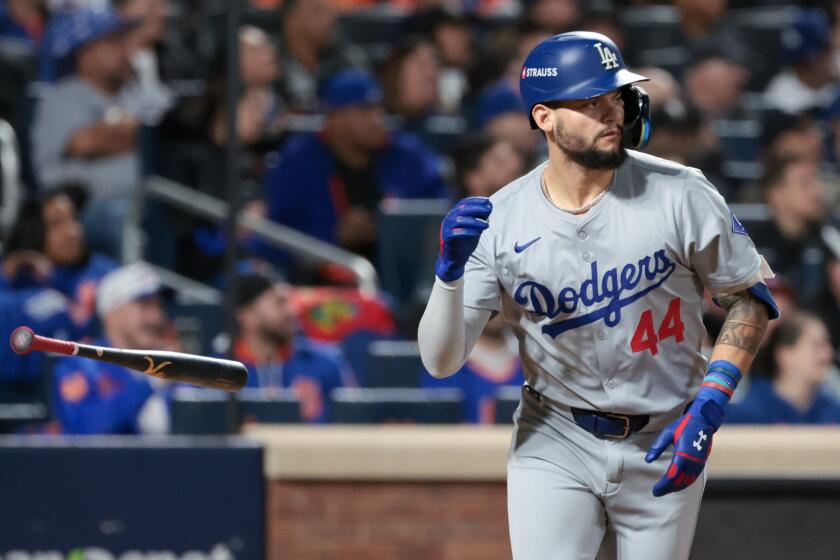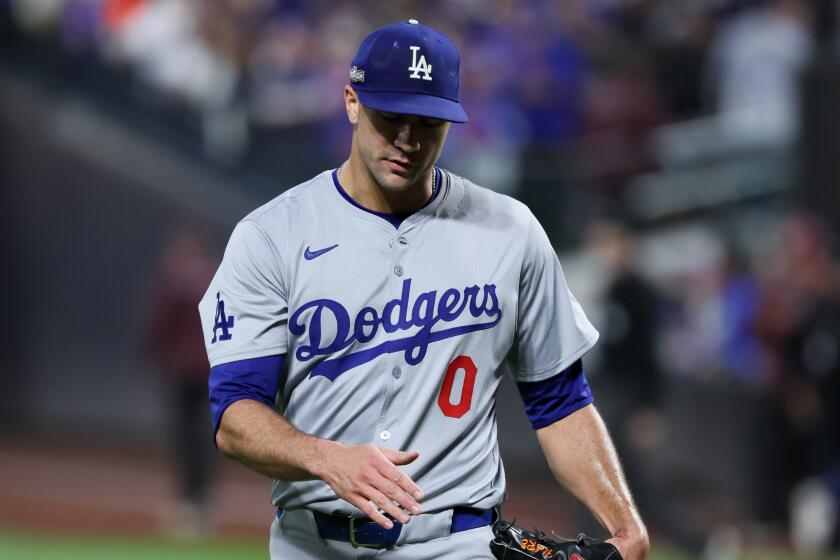Goodwill Couldn’t Keep Schultz Above the Fray : NCAA: Independent report challenged popular executive’s version of loans to athletes.
On May 17, 1991, officials at the University of Virginia held a news conference to announce that they had uncovered a series of loans to student-athletes and graduate assistant coaches.
The loans, ranging from $40 to $1,700, had been made by the Virginia Student Aid Foundation (VSAF), an athletic fund-raising organization, over a period of nine years. If similar loans had not been available to the university’s student population in general, the school stood to be in violation of NCAA rules.
In the world of college athletics, where cash payoffs and phony jobs are the usual means of giving athletes their walking-around money, the matter seemed fairly innocuous.
Some of the loans were made when the school’s athletic department was headed by Dick Schultz, executive director of the NCAA, but even that did not push the matter into the national consciousness.
Since leaving Virginia to become the NCAA’s top administrative official in 1987, Schultz had become an enormously popular figure among the NCAA membership, accessible to anyone who wanted some of his time.
When he said he knew nothing of the loans to athletes, NCAA leaders took him at his word.
“There was faith that the (NCAA infractions) process would bring out the facts when the time was right,” said Gregory O’Brien, University of New Orleans chancellor and chairman of the NCAA Presidents Commission. “Beyond that, the knowledge that people had gained of Dick was sufficient to maintain their confidence in him.”
But by Tuesday, when Schultz announced his resignation, it was clear that the Virginia case had evolved into something that not even Schultz’s high approval rating could overcome.
*
If there is a central figure in the undoing of Schultz, it is not any one person he dealt with in his six years as athletic director at Virginia.
It is James Park Jr., a 60-year-old lawyer from Lexington, Ky.
A graduate of Princeton and a former judge in the Kentucky Court of Appeals, Park served as the University of Kentucky’s lead investigator in the basketball infractions case that grew out of the alleged air-freight shipment of $1,000 to Chris Mills, the former Fairfax High star who signed with Kentucky in 1988.
Through his work on that case, Park earned a reputation as a tough, honest investigator.
When it became apparent that the NCAA’s review of the Virginia loan matter would include Schultz’s role--an obvious conflict of interest for the NCAA enforcement staff--Park was hired to serve as an independent investigator.
Specifically, he was asked to sort through conflicting statements regarding Schultz’s knowledge of the loan program in a report submitted to the NCAA by the university in April of 1992.
According to university investigators, three former Virginia athletic officials had stated that Schultz, while serving as athletic director, knew that the VSAF loaned money to athletes. Noting Schultz’s denials, the university simply described the evidence of Schultz’s knowledge as “conflicting and complex.” The report reached no conclusion.
Where was the truth?
After sorting through a variety of documents and conducting 17 interviews in three states, Park found reason to believe that Schultz was, in fact, in the loop.
Wrote Park: “One must conclude that Mr. Schultz had actual knowledge of at least some of the VSAF loans to student-athletes.”
While noting that “reasonable persons could reach different results in resolving the conflicting evidence,” Park gave credence to the contention of two former Virginia officials--Ted Davenport, former executive director of the VSAF, and Tom Gearhart, a former VSAF employee--that Schultz knew of the loans.
Representing a striking difference between Park’s report and the university’s was the testimony of Willie Snead, a former Virginia wide receiver from Belle Glade, Fla.
Snead had refused to cooperate with the school’s investigation, but he told Park of being directed by Schultz to see Davenport about a loan in 1985. Records show that the VSAF loaned Snead $1,000 in November of that year.
According to the testimony of Snead’s mother, Rosa Mae Asbury, Schultz later refused to allow Snead to transfer to another school until the player repaid unspecified debts.
In his report, Park viewed Snead and his mother’s statements as corroboration of Davenport’s contention that Schultz told him in 1986 to stop making loans to athletes because of an unspecified problem involving Snead.
As for Schultz’s denials, Park appeared to dismiss them when he wrote, “Particular consideration should be given to instances in which information was disclosed to investigators only after it became apparent that the investigators had information on the subject matter from another source.”
According to one investigator, the most damaging aspect for Schultz was the way his story kept changing.
“Not unlike some assistant coach,” the investigator said.
*
On May 6, two years after the questionable VSAF loans had first come to light, the Virginia case finally reached the end of the infractions process.
The NCAA Committee on Infractions put the school on two years’ probation, imposing only minor sanctions. As for Schultz’s role, the committee, citing the NCAA’s four-year statute of limitations for rules violations, made no ruling, sending Park’s report to the NCAA Executive Committee, the panel responsible for overseeing the executive director’s office.
Meeting at the time in Monterey, Calif., the Executive Committee stood by Schultz.
“I acknowledge the (Park) report. I read it,” said Frank Windegger, athletic director at Texas Christian University and an Executive Committee member. “But I don’t know the individuals involved in that report. I do know Dick Schultz and have known him for 30 years.
“I don’t know of one person who has ever questioned Dick’s integrity and honesty. So when Dick looks me in the eye and says, ‘I didn’t know (about the loans),’ I believe him. That’s the only place I can come from.”
Windegger and his colleagues on the committee left Monterey on May 7 thinking Schultz would stay in his job. An announcement was planned for Tuesday, the delay necessitated by the preparations required to release Park’s 188-page report to the media.
By Tuesday afternoon, however, Schultz could see that his credibility was being challenged. With the release of the Park report Tuesday morning, heavier criticism was due to follow.
Schultz realized that he had to resign.
“People inside (the NCAA) were ready to support Dick,” said Tom Hansen, commissioner of the Pacific 10 Conference. “But (the reaction) would have been enormously different from the outside.”
Defiant, Schultz said his decision was simply a move to remove himself as an issue, not an admission of guilt.
“I’ve tried to do what’s in the best interest of intercollegiate athletics, not what’s in the best interests of Dick Schultz,” he said.
Of the Park report, he said: “I’m really tempted to refute this whole thing point by point, and I could do that. I certainly reserve the right to make those statements in the future if I feel my reputation is being damaged. . . .”
Reflecting on Schultz’s decision a few days later, O’Brien, the Presidents Commission chairman, offered a similar view.
“I’m not going to try to get into the Park report and say definitely what Dick knew or didn’t know,” he said. “I just say the NCAA has had an executive director with tremendous integrity who, rather than put the NCAA through a barrage of criticism it didn’t deserve, sacrificed himself. I really think that’s where it ought to rest.”
More to Read
Go beyond the scoreboard
Get the latest on L.A.'s teams in the daily Sports Report newsletter.
You may occasionally receive promotional content from the Los Angeles Times.

